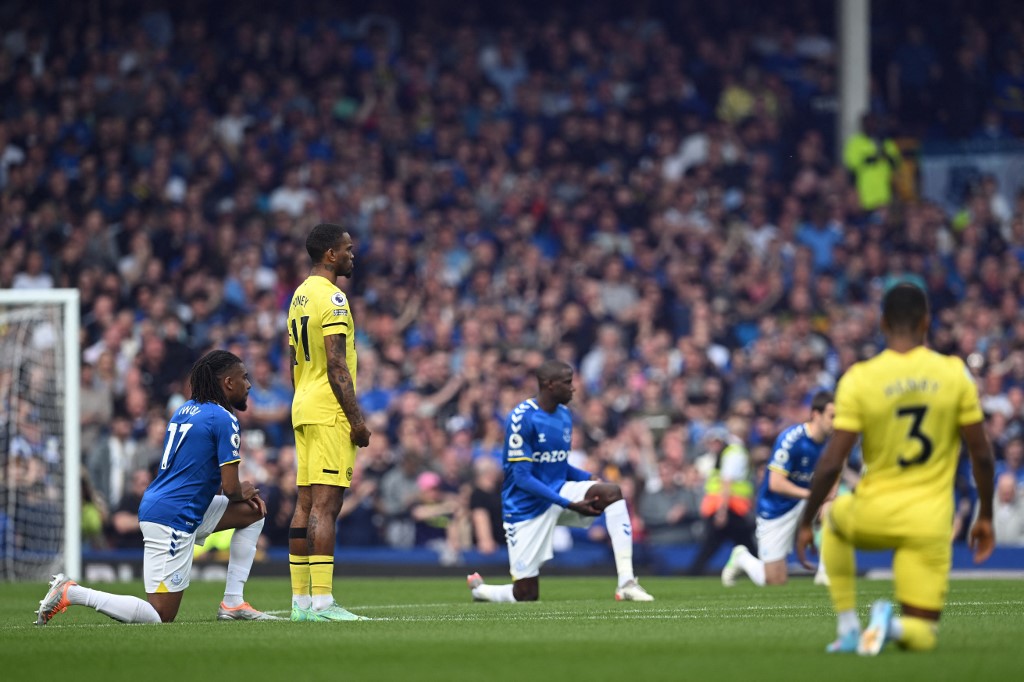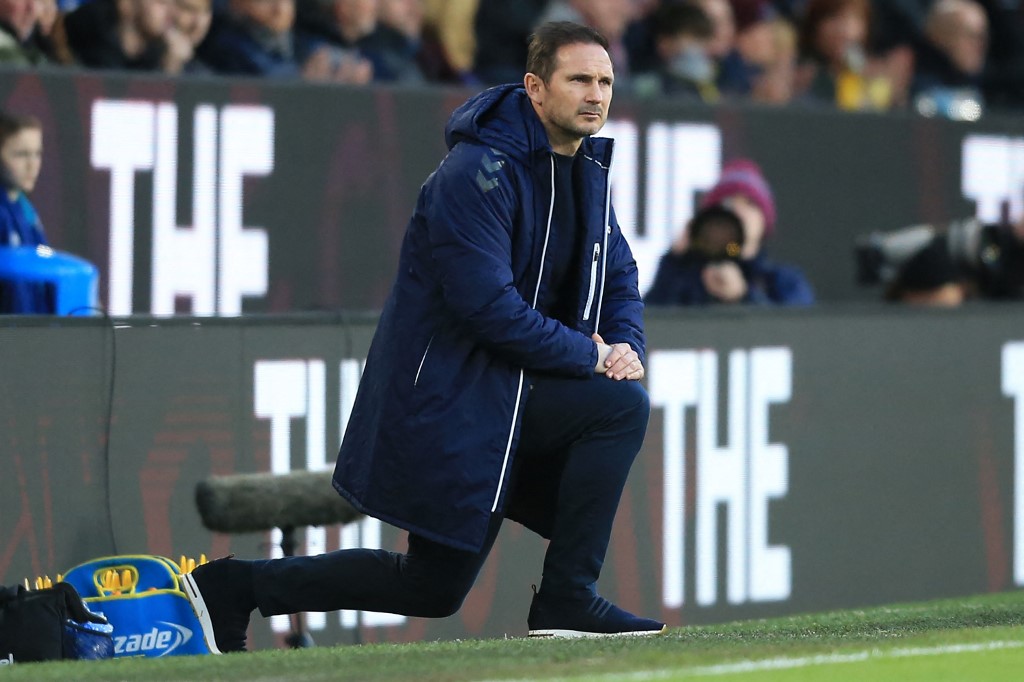Premier League clubs to stop taking knee before every match

FILE–Brentford’s English striker Ivan Toney stands as the other players take a knee prior to the English Premier League football match between Everton and Brentford at Goodison Park in Liverpool, north west England on May 15, 2022. (Photo by Paul ELLIS / AFP) /
English Premier League football players said Wednesday they will no longer take the knee before every match in the upcoming season, following criticism that the anti-racism gesture was losing its impact.
In a Premier League statement, club captains said that instead, they would bend before selected games, “and in so doing we continue to show solidarity for a common cause”.
The league said it supported the captains’ decision, and would elevate anti-racism messaging as part of its “No Room for Racism” campaign — words that already feature on players’ sleeves.
Premier League players began taking the knee at the start of every game in June 2020, when the season resumed following a Covid shutdown, a month after the killing in the United States of George Floyd.
Ex-NFL quarterback Colin Kaepernick started kneeling to protest against racial injustice in 2016, and the gesture has become a familiar sight across a range of sports since Floyd’s murder by a US police officer.
But several Premier League players queried its continuing relevance — and some right-wing politicians in Britain have criticized its identification with the Black Lives Matter protest movement.
Wilfried Zaha, a black striker for Crystal Palace, was an early dissident, labeling the gesture “degrading” and opting to stand instead.
Last season, Chelsea’s white defender Marcos Alonso decided to stand and point instead to the anti-racism badge on his shirt sleeve.
Alonso’s then team-mate Romelu Lukaku said football had to take “stronger” action in the fight against racism, with abuse still rife against black footballers on social media.
“Yeah, we are taking the knee… but sometimes after the game, you see another insult,” Lukaku told CNN Sport in September last year.
Culture wars

FILE–Everton’s English manager Frank Lampard takes a knee in support of the Premier League’s No Room For Racism campaign ahead of the English Premier League football match between Burnley and Everton at Turf Moor in Burnley, England on April 6, 2022. (Photo by Lindsey Parnaby / AFP)
But former Manchester United and England defender Gary Neville criticized the decision.
“It was the most public demonstration to young people in this country that their heroes were fighting inequality,” he wrote on Twitter.
“It’s something my 12 + 13 year old would comment on/notice before each game. Back to wearing t-shirts once a season it is then!”, he added
Rather than every match, Premier League players now intend to take the knee at this weekend’s opening round of the season, and before dedicated “No Room for Racism” match rounds in October and March.
The captains said they will also observe it before Boxing Day fixtures, on the final day of the season, and before the FA Cup and League Cup finals.
“We remain resolutely committed to eradicate racial prejudice, and to bring about an inclusive society with respect and equal opportunities for all,” they said in the statement.
Sales of “No Room For Racism” sleeve badges on replica shirts last season raised £119,000 ($145,000) in royalties for the clubs.
They are donating that sum to designated youth teams, with the Premier League matching the amount, according to the statement.
The players’ gesture has been generally respected by fans before matches.
But sections of the crowd at England games booed the players when they took the knee, prompting an angry response from the national team manager Gareth Southgate.
Piara Powar, head of anti-discrimination organization the Fare Network, told AFP last year that taking the knee was still a meaningful act even if it had become embroiled in a “culture war-type debate”.
“It is something that is impactful,” he said. “If it wasn’t impactful, people wouldn’t be booing it.”
But the Championship, the second tier of top-flight English football, has already started its season with Bristol City and Swansea City both saying their players would no longer take the knee.
The act had become diluted, the clubs said, and the Professional Footballers’ Association said its members did not want the gesture to become “routine, so that it potentially loses its impact”.
“We’ve spoken to players about this and what we’ve heard is that they want to find a balance,” the players’ union chief executive Maheta Molango said.